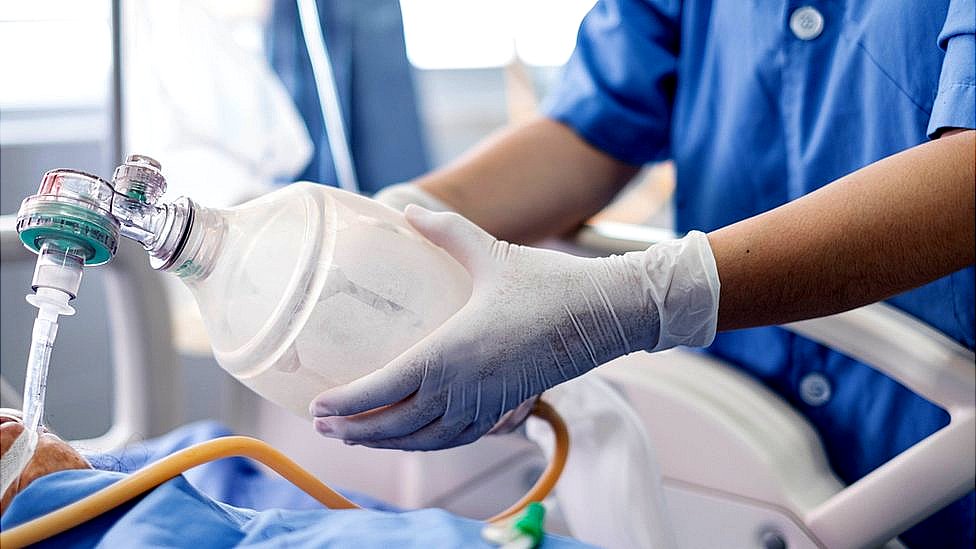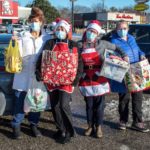Covid-19: Do not resuscitate orders may have been used without consent

Getty Images
Doctors may have made decisions about “do not resuscitate orders” without consent in the first wave of the pandemic, the care watchdog has warned.
The Care Quality Commission said it saw a jump in complaints about such orders between March and September.
These orders may have been used inappropriately when care services were under extreme pressure, it found.
An NHS spokeswoman said clinicians had repeatedly been told the blanket use of DNRs was “totally unacceptable”.
-
PM hails vaccine but warns it is ‘not game over’
- Doctors face agonising life-death care decisions
- NHS staff: ‘Vaccine is a game changer’
Only 15% to 20% of those who undergo cardiopulmonary resuscitation in hospital survive, with survival rates dropping to between 5% and 10% outside of a hospital setting.
Although it can cause punctured lungs, fractured ribs and severe bruising, failing to fully appraise a patient or their loved ones of their options is a breach of their human rights, the CQC warned.
The watchdog’s guidance states decisions on do not attempt cardiopulmonary resuscitation orders (DNACPRs) must never be dictated by blanket policies, must be free from discrimination, and not made on a clinician’s “subjective view of a person’s quality of life”.
But despite reminding care providers of their obligations, the CQC said it received evidence from staff and patients’ families that DNACPR orders had been applied without consultation.
The number of complaints it received about the orders jumped to 40 between March and September, compared to just nine similar complaints in the previous six months.
One carer told the CQC an on-call doctor had informed care home staff that if a resident were to catch Covid-19, a DNACPR order would automatically be put in place.
Another witness said some care homes and learning disability services had been told by GPs to place blanket orders on everyone in their care.
Some families of patients said they were not made aware such an order was in place until their relative was quite unwell.
Others said they had been told their loved one had agreed to a DNACPR order, but they had concerns over their understanding due to factors such as a lack of English or deafness.
‘Blanket approach’
The CQC also found examples of routine care not being provided in homes, such as an ambulance or doctor not being called, due to the existence of the do not resuscitate order.
Inappropriate DNACPR notices may still be on people’s files, the CQC said.
Rosie Benneyworth, chief inspector of primary medical services and integrated care at the CQC, said: “It is unacceptable for clinical decisions – decisions which could dictate whether someone’s loved one gets the right care when they need it most – to be applied in a blanket approach to any group of people.”
An NHS spokeswoman said: “The NHS has repeatedly instructed local clinicians that the blanket application of DNRs would be totally unacceptable and that access to treatment and care for people with learning disabilities and autism should always be made on an individual basis and in consultation with family and carers.”

- LOOK-UP TOOL: How many cases in your area?
- HOLIDAYS: Where can I go away in the UK?
- YOUR QUESTIONS: We answer your queries
- GLOBAL SPREAD: How many worldwide cases are there?
- THE R NUMBER: What it means and why it matters

The CQC is undertaking further fieldwork across seven clinical commissioning groups to understand the extent to which DNACPRs may have been misused during the pandemic.
Its final report is due to be published in February 2021.
Published at Thu, 03 Dec 2020 00:44:52 +0000





Comments
Loading…